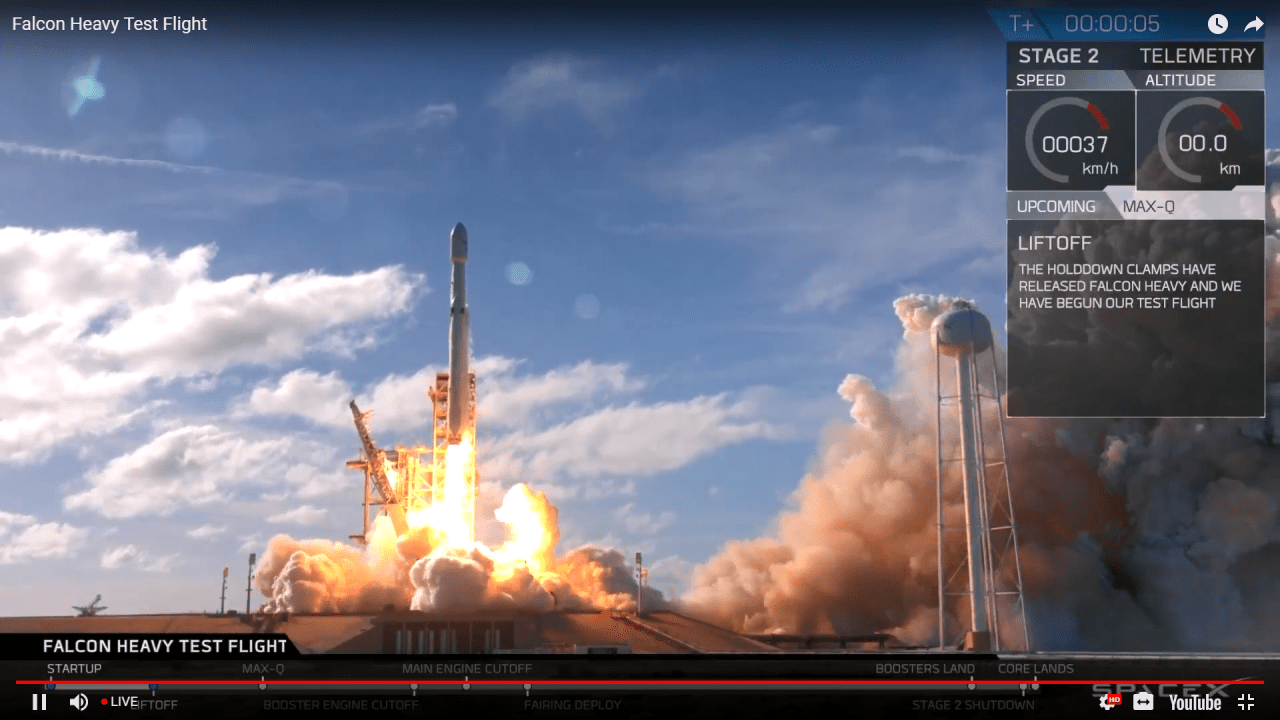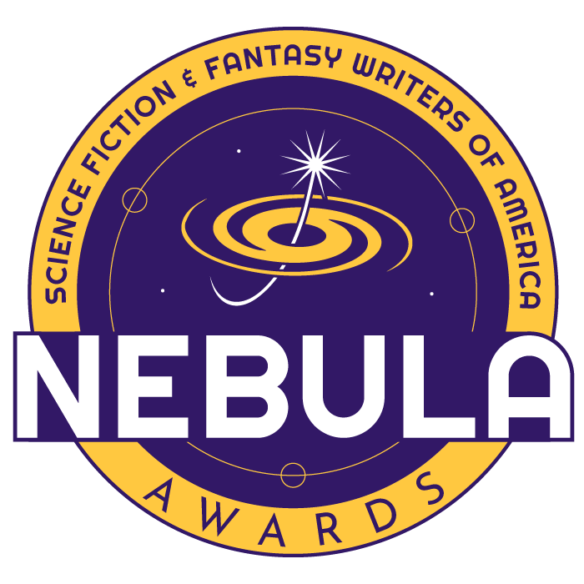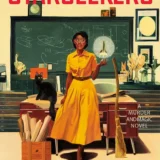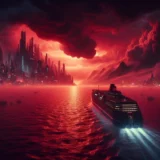 Pull the blinds and turn off the phone, it’s time to head to the Game Room and lock in on some hardcore meta-gaming action. In the Game Room we will explore the world of gaming in all its many incarnations, while lingering over that corner of the meta-verse where games and literature converge. Bust out your opinion and your favorite snack, it’s game time.
Pull the blinds and turn off the phone, it’s time to head to the Game Room and lock in on some hardcore meta-gaming action. In the Game Room we will explore the world of gaming in all its many incarnations, while lingering over that corner of the meta-verse where games and literature converge. Bust out your opinion and your favorite snack, it’s game time.
As I sit in the Game Room looking at shelves filled with dusty paperbacks and abused game books, I consider the shifting line between science fiction and fantasy. Recently I joined a book club on Goodreads called The Sword and Laser in which members vote on books in two categories. The Sword category marks books as works of fantasy, while the Laser category marks books as works of science fiction. The reading list for the group alternates each month between Sword and Laser. As I examined the list, I noticed several entries on both lists that looked out of place to me. Obviously others in the group felt they belonged on that list.
As you might have guessed, the Game Room is all about rules, since every game must have rules. With this in mind, our obsessive compulsive nature requires that we create rules for determining the difference between science fiction and fantasy. Perhaps our search for a universal ruling in this case may be in vain, but just like the top shelf physicists who hunt tirelessly for a Unified Field Theory, we will press on.
In my younger days, the great James E. Gunn explained to me that the difference between science fiction and fantasy was that in science fiction there was an attempt to explain why and how things occurred. That is they explained the science of the science. Fantasy on the other hand had no explanation. The events were simply the events.
Case in point: Star Wars in its original incarnation made no attempt to define or explain how it was possible to have a light saber. The Force was a magical energy that allowed Jedi to perform supernatural feats, while movement at the speed of light allowed ships to travel light years away in a matter of hours. Some might argue that Star Wars is fantasy and not science fiction. They might suggest that the Death Star is the evil wizard’s castle, and that Luke and Han Solo are the warriors storming the castle to save the princess. As all good fantasy tales go, the adventure party defeated the evil wizard, Darth Vader, and saved the princess.

The Game Room is confident that the majority who have joined in the discussion of this ruling, would label Star Wars as science fiction and not fantasy. So what makes it science fiction? Does my new reading group have it pegged? Does the existence of lasers in the story make it science fiction? In part, it does, but really it goes beyond that. It seems as if a story or game or movie that has technology beyond that of present day Earth is considered science fiction. So with that in mind robots, space ships, laser guns, aliens, and alien worlds all add up to science fiction. The Tech Geek in me says wait. We have robots and space ships and laser guns today, and the United States border patrol would suggest we have aliens here too. Suddenly that line of future technology becomes a little more vague. Certainly when we look at light sabers and warp drives and cyborgs it is easier to identify science fiction, but when you draw a line back to our present day technology where does the line stop?
We also wonder how this definition applies to historical science fiction, or for that matter simply old science fiction. What about Twenty Thousand Leagues Under the Sea? When it was written in 1870, the technology was beyond the world’s reach. As we look back now, the technology in the book appears mundane. So at what point in our history did the Jules Verne classic cease being science fiction and simply become fiction? Or did it?
What about games like Shadowrun? Science and magic exist together? Does the existence of magic in a book or game or movie make it fantasy? Does a Jedi wield magic or some scientific power? The Grandmaster Arthur C. Clarke stated that any sufficiently advanced technology is indistinguishable from magic. With that in mind, phasers and transporters are advanced beyond our present day ability to recreate them. Are they magic? Is a phaser just a disintegration spell? Is a transporter simply a teleportation spell? What would happen if Gandalf and Darth Vader went toe to toe? Whose magic would win out?
Is Game of Thrones fantasy because they use swords and not light sabers? How many dragons have we seen in a Star Wars movie? Are the Others simply the Zombie Apocalypse? Swords and castles and armor are all very real technology that is easily explained. Ravens deliver messages from kingdom to kingdom, but how does Obi Wan transmit a holographic image hundreds of light years away?
The role-playing game Traveller uses a concept known as Technology Levels to label different societies, in all there are sixteen tech levels from zero to fifteen. In brief they are as follows:
TL0: No technology. Stone age.
TL1: Bronze or iron age.
TL2: Renaissance technology. Introduction of the scientific method.
TL3: Industrial revolution. Steam power.
TL4: Industrial world. Late 19th century early 20th century.
TL5: Technology begins to blossom. Mid 20th century.
TL6: Dawn of the space age. Landing on the moon.
TL7: Reach orbit easily. Computers become prevalent.
TL8: Possible to reach planets in the solar system. Space habitats are possible. Today.
TL9: More advanced means to travel in space. Ability to begin to colonize other worlds.
TL10: Can start reaching other solar systems.
TL11: True Artificial Intelligence is born. Space travel continues to expand.
TL12: Terraforming becomes possible. Still more advances in space travel.
TL13: Cloning body parts. Advanced weaponry. Space travel between systems is easy.
TL14: Flying cities and fusion weapons.
TL15: Human lifespan is dramatically increased. Technology has passed into the realm of magic.
Let us step back and take a look at these categories and try to apply them to the line between fantasy and science fiction. If we say that anything more advanced than us is science fiction, we would need to select Tech Level 9 and higher as being science fiction. I would place Star Wars at Tech Level 13 and Star Trek at TL13 or TL14, but where does Doctor Who fit in?
If we travel backwards to find a line for fantasy, how far back do we need to go to set the line? Would Tech Level 3 represent fantasy? Steam Punk is generally considered science fiction, but it contains technology more primitive than our own. Ah, but does it try to explain the technology? Does that make it science fiction? Or is it that the technology is believable? Maybe the line should be drawn at Tech Level 2. I would place the Game of Thrones at Tech Level 2 and it is considered fantasy, but what about the scientific method? Surely that must weigh for something. Romeo and Juliet would be tech level 2, but it is neither science fiction nor fantasy, but if we add in an alien attacking the lovers it becomes science fiction. Unless the alien is in fact a creature summoned by the evil warlock, but what if the evil warlock is a Sith Lord? I’m confused, and my head is spinning.
 Perhaps we could simply look at the time period of the setting to determine fantasy or science fiction. I glance over at Jim Butcher and his urban fantasy, and decide that won’t do. I circle back to the zombies. Zombies created by an evil necromancer equates to fantasy. A scientific explanation for flesh eating zombies ( see I Am Legend by Richard Matheson and popularized by Will Smith) becomes science fiction.
Perhaps we could simply look at the time period of the setting to determine fantasy or science fiction. I glance over at Jim Butcher and his urban fantasy, and decide that won’t do. I circle back to the zombies. Zombies created by an evil necromancer equates to fantasy. A scientific explanation for flesh eating zombies ( see I Am Legend by Richard Matheson and popularized by Will Smith) becomes science fiction.
The Game Room demands a ruling on the line between science fiction and fantasy, but I find myself shaking a fist at my picture of Einstein. Can it be that the ruling we seek is as elusive as the Unified Field Theory? Or can it be as simple as Laser equals science fiction and Sword equals fantasy? Perhaps there is no answer. Perhaps we will just continue to survive on instinct, using our primitive intuition to separate science fiction from fantasy. Someone please provide the house rule.
R.K. Troughton works as an engineer, developing tomorrow’s high-tech gadgets that protect you from the forces of evil as well as assist your doctor in piecing you back together. His passion for science fiction and fantasy has been fed through decades of consumption. He is the author of numerous science fiction and fantasy screenplays and short stories, and his debut novel is forthcoming. His articles appear every Wednesday morning on Amazing Stories.









It seems as if there are some discrepancies between various attempts to differentiate Science Fiction from Fantasy. At present I am at work on a Blog about Junes Verne. This may not be by any means a definitive answer to the problem of choosing between the two but I see Science Fiction, at least from a historical point of view, as being any story which extrapolates from known science e.g. in "Twenty Thousand Leagues Under the Sea" which is grounded in Darwin's scientific discoveries, to a plausible (and in some cases accurate) future scientific creation or discovery. Cell phones are, after all, only Gene Roddenbury's communicators with dialing capabilities…
in re the cell phone – Heinlein gets credit for that one in Space Cadet.
Verne certainly qualifies, but considering that we've yet to have come up with a definition of SF that encompasses all, I think it safe to say that the boundaries remain ill-defined.
Is paranormal fiction – or are paranormal abilities science fiction? Some say yes, others no. Chandler used telepathy in his rim worlds stories that are assuredly SF – but the telepathy is not. So where does that work sit? How about Niven's A Gift From Earth and 'plateau eyes'? The seemingly psi ability is removed from paranormality by giving it (what as at the time) a plausible, neo-scientific explanation.
And what about Brin's The Practice Effect? Magic rendered scientific by alternate world travel into a universe where the physical laws are slightly diffferent from out own.
Wasn't there, for a brief time in the 1980s, a genre kniwn as "science fantasy"? I think that perfectly encompasses things like Star Wars, Shadowrun, Brian Lumley's Necroscope books, etc. Etc.
The litmus test I was given (right or wrong) for science fiction is the following:
If you remove the science from the story, do you still have a story? True science fiction should have at its heart science. The story should fall flat, if you remove the science.
Example: Set Star Wars on earth in the 20th century, can you still create the same story.
If you replace HAL (2001: A Space Odyssey) with a warden or overprotective figure and put the story in a prison or on an island instead of space, do you still have the same story?
Avatar replace with any primitive culture on earth that we civilizeds exploit.
Great comments and insight everyone.
Thanks,
RKT
I mostly agree with this perspective.
The thing about Avatar is that Native Americans did not have the option of appealing to the world mind and getting all the animals to fight on their side. It really has a science fiction story not possible on Earth given the present circumstances.
RK – yes, that's a pretty well-aged measuring stick as well – but it doesn't address the issue of whether it is good, solid science – science that is plausibly extrapolated from what we know now – or not that is being removed.
The grand, works all the time definition remains Damon Knight's – SF is what I'm pointing at when.I say that's SF. Sadly, I have not been given the power to make my pointing finger everyone else's and instead of conformity, we are left with subjectivity, which is itself ironically anathema to science.
Mike – that's excellent! Now we need to match those levels with books and we might actually have an approachable grading system!
This is a subject that I have pondered, discussed and argued any number of times. But first some direct responds to concepts raised earlier:
First, Astrid is correct that in terms of world-building, fantasy has become as rigorous as science fiction (at least SF of the 9th and 10th level) but a major difference remains: fantasy is free from the strictures of scientific knowledge while science fiction is not. Fantasy is, therefore, less restrictive in its requirements – looser – than SF
Felicity is probably (unfortunately) correct in that readers are looking for characterization and more 'literary' affecttations in their SF and this probably does contribute to the erosion of the divide, but this does SF a bit of a disservice by suggesting that older works lacked these qualities. Two points here: there are some very fine examples of earlier SF works that posess all of the qualities the modern reader is looking for and – much earlier SF followed a convention of utilizing character tropes rather than carefully constructed unique individuals. This allowed authors the space to present other elements – an ecology, a scientific principle, a logic and demonstrate human reactions to these things – which is the Campbellian definition of SF. Works under the banner of Science Fiction that don't show this are not SF by at least one definition that has held for the past 50+ years.
I think that when it comes to Star Wars, one must reluctantly come to the conclusion that it is science fantasy – not science fiction. It meets the test of showing how technology affects humans and their societies, but it fails the plausibility test. Good SF meets Campbell's requirement and passes the plausibility test (we can argue the implications of various scientific facts and theories another time); fantasy doesn't have to meet the Campbell test, nor does it have to meet a plausibility test (in relation to real-world knowledge).
Going with the theme of scales and gables (I was a game designer too). we can set up the following.
Campbell Test Plausibility
with a 1 for passes and a 0 for doesn't pass or isn't relevant. We then get this:
Campbell. Plaus
Science Fiction. 1 1
Science Fantasy. 1 0
? 0 1
Fantasy. 0 0
Perhaps the ? class is the 'new' SF?
I'm not sure.
Oh and Mike – Avatar does not belong anywhere near 8. Unobtainium indeed!
Steve, it's possible some of my suggestions should move up or down a slot or two. Some superhero stories are far from scientific, some very realistic. Maybe Space Cowboys should swap out with Aliens, for instance. When it comes to Avatar, I'm pretty happy with it where it is. The Unobtanium is merely a room-temperature superconductor. The problems with it involve why we can't figure out how to synthesize it and why it is capable of levitating as much as is shown in the movie. Also, there's an issue of why giant alien blue women are so sexy, but I'm game if they are.
My favorite science fantasy novel is A GAME OF UNIVERSE by Eric Nylund.
The problem going to books is that so many are more realistic and plausible…
P.S. Do my scale with books. I'd love to see it!
The best demarcation between science fiction and fantasy I ever heard was from James Patrick Kelly: that science fiction is where the fictional elements we believe are possible and fantasy is where the fictional elements are not.
Personally, I think the distinction nowadays increasingly does not make sense, which is why I personally prefer the term "speculative fiction" to sum up both genres.
Good fantasy writers also base their world on science. Not the natural sciences, but social sciences and humanities: anthropology, history, archeology, sociology, psychology, economics, cultural studies, linguistics, etc. Many fantasy writers are concerned with how societies work, and how different material and social cultures affect the ways people act. Some fantasy worlds are just as consistent and carefully thought out as any natural-science based science fiction story. Then there are writers like Ursula Le Guin, who writes both fantasy and science fiction, and who even in her science fiction stories, is generally more concerned with societies and their rules, than with feats of engineering.
And if there is magic, it generally has rules – things a wizard can or cannot do. Just like there are things which are and things which aren't possible in engineering. If one could just solve any problem by magic, that would be dreadfully boring! Besides, at one time what we now summarily call "magic" (if not "mumbo jumbo"), *was* the scientific knowledge of the people who used it, and it *always* had carefully prescribed rules, which would be kept secret and only passed on to those who were carefully selected to be apprenticed in those arts.
In that sense, the unexplained physics in Star Wars doesn't make it fantasy, it just makes it fluffy. 😀 Just like some fantasy universes are less intellectually coherent than others. Which doesn't mean that they can't also be fun – and yes, of course Star Wars is a Fairy Tale.
A subject near and dear to my heart, this! IMO you nailed it in your closing graf: it's all a question of aesthetics. Science fiction started off as science with fictional exponents, to be sure. You were meant to read it for the ideas. But now it's evolved into a genre like fantasy with its own instantly familiar tropes … sure, the hardcore boffin-penned stuff remains as a niche (David Brin!) but general sf readers now seek story over science, I think. And that privileges aesthetics over ideas.
I disagree though with the concept that fantasy doesn't have to explain itself. What about all those "magic systems"? Those are as Newtonian as any space shuttle — proving once again that it's the aesthetics that determine genre.
I have my Hardness Scale for Science Fiction: https://www.mikebrotherton.com/2010/12/23/the-hard…
0. Futurama.
1. Star Wars.
2. Most Superhero Movies (e.g. Spider-Man)
3. Event Horizon.
4. Armageddon.
5. Star Trek.
6. Space Cowboys.
7. Aliens.
8. Avatar.
9. Contact.
10. 2001: A Space Odyssey.